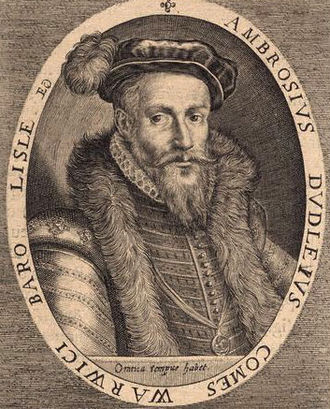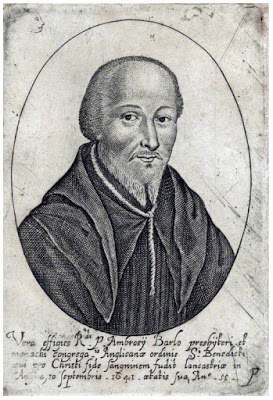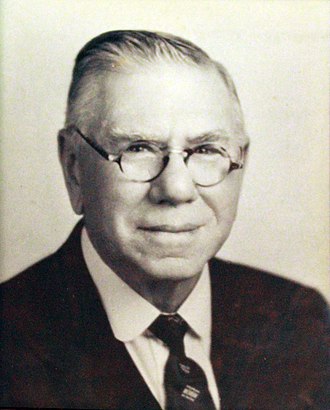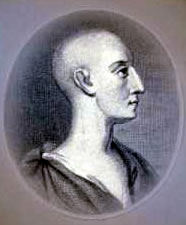Discover Your Roots
SIGN UPDiscover Your Roots
SIGN UPAmbrose is a Greek-origin male name that means "Immortal." Derived from the Greek word ambrosios, it signifies "belonging to immortals" or "god-like," with a connection to the food of gods, ambrosia. Notable individuals with this name include St. Ambrose of Milan, Ambrose Bierce, and Ambrose Kenny-Smith. The name has historical significance, borne by influential figures in various fields such as theology, literature, music, and sports. Its timeless meaning and cultural significance make Ambrose a name with enduring appeal. Whether it's the association with immortality or the god-like connotation, Ambrose carries a sense of strength and distinction. With its rich history and profound significance, Ambrose remains a name of enduring relevance and meaning.

Ambrose Dudley, 3rd Earl of Warwick, KG (c. 1530 – 21 February 1590), was an English nobleman and military leader, known as the elder brother of Robert Dudley, Earl of Leicester, who was a favorite of Queen Elizabeth I. He came from a prominent family with strong Protestant leanings. Dudley's involvement in attempting to establish Lady Jane Grey on the English throne led to his imprisonment in the Tower of London and a death sentence, although he was later reprieved. His rehabilitation came after fighting for King Philip in the Battle of St. Quentin. Dudley was appointed Master of the Ordnance upon Queen Elizabeth's accession and played a role in assisting William the Silent in his fight against Spain. He was later created Earl of Warwick and led military campaigns in France and against Northern rebels. Despite three marriages, he remained childless, impacting the survival of his dynasty. Known for his support of the Elizabethan Puritan movement and humble lifestyle, he was affectionately referred to as the "Good Earl of Warwick." Dudley's close relationship with his brother Robert and their shared patronage of the Puritan movement left a lasting impact on Elizabethan England.

Ambrose Edward Barlow, O.S.B. (1585 – 10 September 1641) was an English Benedictine monk and one of the Forty Martyrs of England and Wales canonized by Pope Paul VI. Born at Barlow Hall, Chorlton-cum-Hardy, near Manchester, Ambrose was the fourth son of Sir Alexander Barlow and Mary Brereton. Despite his family's Protestant leanings, Ambrose eventually converted to Roman Catholicism and pursued priesthood. Returning to England after ordination, he served as a Catholic priest for twenty-four years in south Lancashire, catering to the needs of the Catholic community while evading detection by Protestant authorities. Despite facing multiple arrests, he refused to flee or hide, ultimately being surrounded and arrested on Easter Day in 1641. He was transported to Lancaster Castle, where he had a premonition of his fate before his execution. Ambrose's unwavering dedication to his faith and service to the Catholic community exemplify his enduring legacy as a revered martyr.

Ambrose Jessup "A.J." Tomlinson (1865–1943) was a significant figure in American religious history. Born into a prominent Quaker family near Westfield, Indiana, Tomlinson's early life was marked by the influence of his family's strong business and political involvement. Despite his battles with illness, including a severe bout of cholera, Tomlinson excelled academically and athletically. He graduated from Union High School and married Mary Jane Taylor in 1889, a fellow Quaker involved in the holiness revival.Tomlinson's conversion experience at the age of twelve, detailed in his autobiography, "Answering The Call of God," marked the beginning of his spiritual journey. After marrying Mary Jane, he experienced salvation, which set him on a path towards becoming a prominent religious leader. In 1903, he was elected as the first general overseer of the Church of God (Cleveland, Tennessee) due to his drive, vision, and organizational skills. Additionally, he served as the first president of the church's Lee College, later known as Lee University, from 1918 to 1922.The later years of Tomlinson's life were marked by a division within the Church of God, leading to the creation of the Church of God of Prophecy by his followers. Despite this division, A.J. Tomlinson's contributions to the American religious landscape are noteworthy and have left a lasting impact.

Ambrose Philips (1674 – 18 June 1749) was an English poet, politician, and key figure in the literary disputes of his time. Born in Shropshire, he was educated at Shrewsbury School and St John's College, Cambridge. Philips was known for his pastorals and epistles, particularly the description of winter addressed to the Earl of Dorset, but he is perhaps best remembered for the nickname "Namby-Pamby," bestowed upon him by Henry Carey. This term came to mean affected, weak, and maudlin speech or verse. Philips was a staunch Whig and a friend of prominent figures like Richard Steele and Joseph Addison. He feuded with other poets, particularly with Alexander Pope, who frequently mocked him in his works. Despite the ridicule, Philips made significant contributions to English literature, including translations and original plays. He also engaged in politics, sitting in the Irish House of Commons and serving as a justice of the peace for Westminster. Ambrose Philips passed away in London on 18 June 1749.

Sir Ambrose Crowley III (1 April 1657/8 – 17 October 1713) was an influential 17th-century English ironmonger and politician. Rising from humble beginnings as the son of a Quaker blacksmith, Ambrose's career saw him become the Sheriff of London in 1706 and subsequently knighted by Queen Anne in the same year. His legacy lies in the Crowley Iron Works, which spanned various locations in County Durham and were among Europe's largest industrial sites at the time. Notably, Crowley's management approach was ahead of its time, with provisions for workers' rights, sickness payments, and a company medical team. The 'Rules of the Crowley Iron' outlined these progressive guidelines. His impact extended to the development of iron and steel technologies, contributing to the foundation of the Sheffield steel industry. In addition to his professional accomplishments, Ambrose was elected as a Member of Parliament for Andover in August 1713, though his life was cut short when he passed away later that year. His descendants include notable figures such as British comedian and actor Alexander Armstrong and Hugh Magnus MacLeod of MacLeod, the 30th Chief of Clan MacLeod. Sir Ambrose Crowley III was laid to rest at SS Peter and Paul's Church in Mitcham, Surrey, where a monument commemorates his remarkable contributions to industry, business, and philanthropy. For further insight into his life and impact, M. W. Flinn's "Men of Iron"
All images displayed on this page are sourced from Wikipedia or Wikimedia Commons.We use these images under their respective Creative Commons or public domain licenses. Wherever applicable, author attributions and license information are provided. If you believe an image is used incorrectly or outside its license terms, please contact us so that we can review and correct the issue.